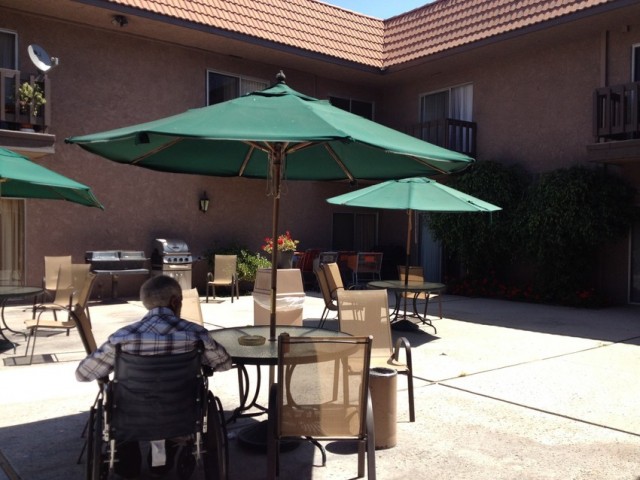AB1571 (Eggman D-Stockton) would have created a more robust online consumer information system than the one currently offered by the Department of Social Services.
[Related: Online Information About Assisted Living Facilities Hard to Come By]
“It is very disappointing," says Pat McGinnis, executive director of California Advocates for Nursing Home Reform, one of the key advocacy organizations sponsoring legislation this year. McGinnis says that there are more than 7,500 licensed facilities in California, "and absolutely no way for consumers to compare one facility with another. It will be impossible for consumers to try to look up 348 [facilities] in Alameda County, for example, to try to see what violations, deficiencies, et cetera, they might have.”
"I am not at all finished with this issue,” says the bill’s author, Assemblywoman Susan Eggman (D-Stockton). Though she says the DSS has already made changes to its website in response to AB1571, Eggman says she is considering reintroducing similar legislation in the next session. The DSS declined to comment.
AB1454 (Calderon D-Industry) would have required every facility licensed by the Department of Social Services to be subject to annual, unannounced inspections. DSS licenses many different types of facilities, not just assisted living facilities. Currently, state law requires DSS to visit a facility every five years, barring a complaint which generates a separate visit. The agency says in practice it has an investigator visit about every 2 and a half years.
Bill watchers say two concerns appear to have spiked this bill. For one thing, AB1454 would have changed the inspection frequency for every type of facility DSS visits. For another, that would cost a pretty penny: $20 million, by one state estimate.
In a written response, Assemblyman Ian Calderon said, “Although the Legislature provided an increase in funding to the Department of Social Services in the 2014-2015 Budget to protect our children and elderly, annual inspections continue to be urgently needed as part of the oversight process. Without increasing the frequency of unannounced visits, our state will continue to put our most vulnerable populations – children and elderly – at risk.”
But there's another bill that addresses this issue, in part. SB895 (Corbett D-Alameda) would phase in unannounced annual visits for assisted living facilities only, by July 1, 2018. That passed out of the Senate Appropriations Committee with amendments.
Finally, AB1554 (Skinner D-East Bay) would have required the DSS to investigate complaints that alleged physical or sexual abuse, or imminent physical danger, at assisted living facilities within one working day, instead of 10 -- and report to the complainant promptly.
[Related: Crime in Assisted Living: What Happens After]
Assemblywoman Skinner remarks the bills that made it out of the Senate Appropriations Committee put the onus on the industry itself, as opposed to the DSS.
“My frustration is, if we have higher expectations on the facilities, if we don’t have responsibility of the agency to enforce, then how are we going to feel assured that these facilities are complying?” Skinner is termed out, so she won’t introduce a similar bill next legislative session. But she adds, note how many legislators were involved in trying to reform assisted living facilities. This issue, Skinner says, isn’t going to go away.
Rachael Myrow contributed to this report.
